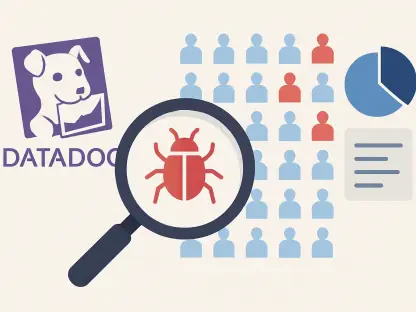The imperative for businesses to adapt rapidly in the evolving marketplace has positioned Agile methodologies as vital processes to enhance speed and flexibility. Initially conceived primarily for IT and product development teams, Agile transformations have now permeated various organizational sectors, including marketing. However, the integration of marketing remains elusive, often overshadowed by the technical focus of Agile frameworks. This oversight tends to constrain marketing’s potential to contribute effectively, limiting the scope of Agile’s foundational aims in customer-centric advancement. Exploring the intersection between marketing and Agile transformation reveals marketing’s potential to not merely complement Agile strategies but to drive them toward holistic organizational change. Therefore, establishing marketing as central to Agile transformations could unlock unparalleled levels of customer connection and brand engagement.
Marketing’s Role in Expanding Agile
Marketing’s participation in Agile transformations is often undervalued or delayed due to the industry’s traditional technical association. Agile principles, initially developed to streamline software workflows, are typically presented in a language that does not resonate with marketing teams. This communication gap hinders marketing from aligning with Agile practices and diminishes its ability to leverage Agile’s benefits for customer engagement and brand building. The integration requires recalibrating Agile’s technical frameworks to suit marketing dynamics, encompassing brand strategies, campaign agility, and customer insights. When marketing workflows like test-and-learn strategies, content sprints, and campaign retrospectives are embedded in Agile processes, they reveal marketing’s agile alignment. Effective integration extends Agile’s focus beyond projects to enrich customer experiences, embodying marketing’s holistic approach.
Integration Strategies for Agile Marketing
To integrate Agile within marketing effectively, it is crucial that frameworks recognize the unique workflows of marketing teams. Agile transformations often fail when they do not respect marketing-specific processes, like test-and-learn cycles or multi-channel campaigns. Organizations are urged to adopt a dual-faceted strategy that brings together Agile principles with marketing insights. Employing internal advocates with dual expertise—possessing technical and marketing acumen—facilitates smoother transitions and results in higher returns on investment. Marketing personnel can be empowered with Agile skills to foster cross-disciplinary collaboration. This synergy enables marketing departments to adopt Agile not just as an operational tool but as a comprehensive strategic framework. Through this integration, marketing plays an instrumental role in agile-driven campaigns, optimizing project impact and responsiveness.
Real-World Applications and Benefits
Case studies offer persuasive evidence of Agile’s success in marketing when customized to fit its unique elements. One notable example involves a global financial services firm struggling with Agile adoption when introduced solely through a technical perspective. By incorporating marketing-relevant concepts and practices, the firm transformed its marketing operations, leading to substantial campaign enhancements. Another case highlights how an international consumer goods company employed cross-functional Agile teams for rapid product development and testing, accelerating timelines by leveraging real-time consumer insights. These examples underscore Agile’s capacity to foster innovation and efficiency when marketing principles are adequately incorporated. This practice reveals how Agile, rooted in customer feedback, can effectively enhance marketing functions, aligning them more closely with customer-centric goals.
The Path Forward for Agile Transformation
Exploring Agile transformations without the influence of marketing reveals substantial limitations in achieving success centered on business and customers. Marketing’s inherent strengths in brand positioning, engaging audiences, and interpreting consumer insights can fundamentally enhance Agile practices. When marketing integrates seamlessly with Agile frameworks from the start, it ushers in a strategic change that fosters collaboration, dismantling organizational silos. This transformation transcends mere technical adjustments, evolving into a holistic approach that emphasizes customer connection and operational agility. Implementing this integrated framework necessitates a cultural shift, recognizing marketing insights as vital in product development to ensure decisions align with current consumer needs and market dynamics. Ultimately, Agile transformations enriched by marketing signal a future where customer focus and innovation are synonymous with business achievement. Marketing’s crucial role allows Agile to extend beyond technical limits, driving sustainable growth and maintaining competitive edge.









